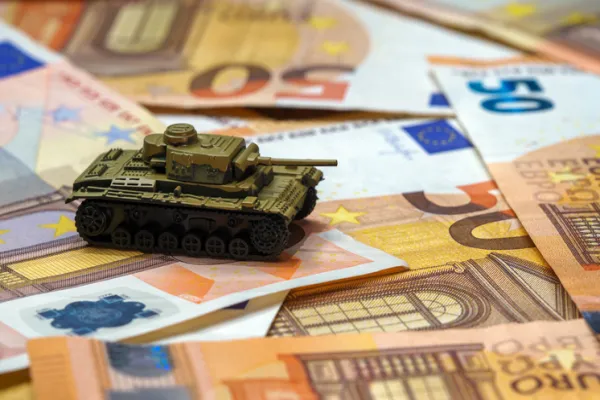There’s a phase in every crisis when the unthinkable suddenly becomes thinkable. Concerns over the solvency of Greece shifted into that phase over the weekend, upending financial markets on Monday morning. European bank shares were hammered on Monday, led by declines of 9.8 percent at France’s BNP Paribas and 9.3 percent at Societe General. France’s biggest banks have the greatest exposure to the debt of Greece.
French banks have by far the most to lose if Greece defaults. Their exposure to the public and private debt of Greece is $56.7 billion, according to a report issued in June by the Bank of International Settlements. German banks have the next-highest level of exposure at $34 billion, BIS said. U.S. exposure is much more limited at $7.3 billion.
The carnage was much broader than just the banks, though. European stock markets fell, led by a 4.2 percent decline at France’s CAC Index. The price of the euro plunged to 1.3560 and investors flocked to U.S. Treasury bonds, which yielded as little as 1.1891. The price of gold rose and the price of oil fell as fears of a global recession and slowdown in demand mounted.
Greece, the epicenter of the European debt crisis, was supposed to be a minor crisis. After all, Greece is a small country, and the combined effort of the European Central Bank, the EU and the IMF were supposed to keep it under control. It was larger economies, such as Spain and Italy, that were really dangerous. As it turns out, the reality of a Greek default looks more and more unnerving, especially from up close.
Civil unrest in Greece is mounting. According to news reports, 25,000 demonstrators clashed violently with police where Prime Minister George Papandreou spoke over the weekend. The demonstrators tossed petrol bombs at the police, who responded with flash bombs and tear gas. Tax and custom workers, air traffic controllers and cab drivers are planning strikes to protest budget cuts that were promised in exchange for an additional bailout by other EU members. Interest rates on Greek debt soared to nearly 200 percent for bonds due in March 2012.
Greece appears unable to meet its obligations to bondholders, even with the support of a bailout. Yet the next tranche of its bailout is in doubt, because it appears that budget cuts tied to the funds are politically impossible to execute.
Given the turmoil, Germany’s finance minister has started to make plans to bail out German banks in the event of a hard default by Greece, Der Spiegel reported on its website on Saturday. The German news site also said that Volcker Bouffier, the governor of the German state of Hesse, said that it may be time for the EU to create a mechanism for allowing states to leave the euro zone. Spiegel noted that Bouffier and Wolfgang Schauble are members of the Christian Democratic Union, the same political party as Chancellor Angela Merkel.
Concerns that Greece would default over the weekend were unrealized, but it’s unclear how long it can be avoided. Greece’s prime minister, George Papandreou, vowed in a speech on Saturday that Greece will pay its debts and remain in the euro zone. “We have taken the decision to fight to avoid a catastrophe for our country and its citizens: bankruptcy. We will remain in the euro. And this meant and means difficult decisions,” he said.
While the government might be able to make difficult decisions, it’s unclear whether it has the means to realize those decisions in the face of violent protests. The prospect of a default has already gone from unthinkable to thinkable. Now it may enter the final stage of a crisis, when the unthinkable suddenly seems inevitable. And the transition to that final stage can occur very swiftly.






